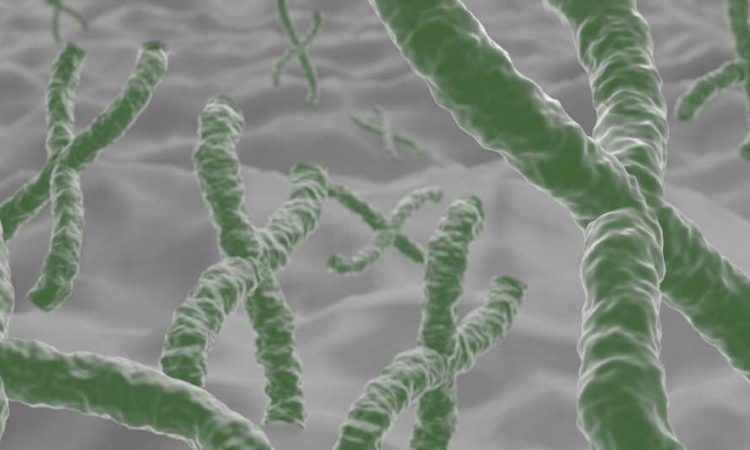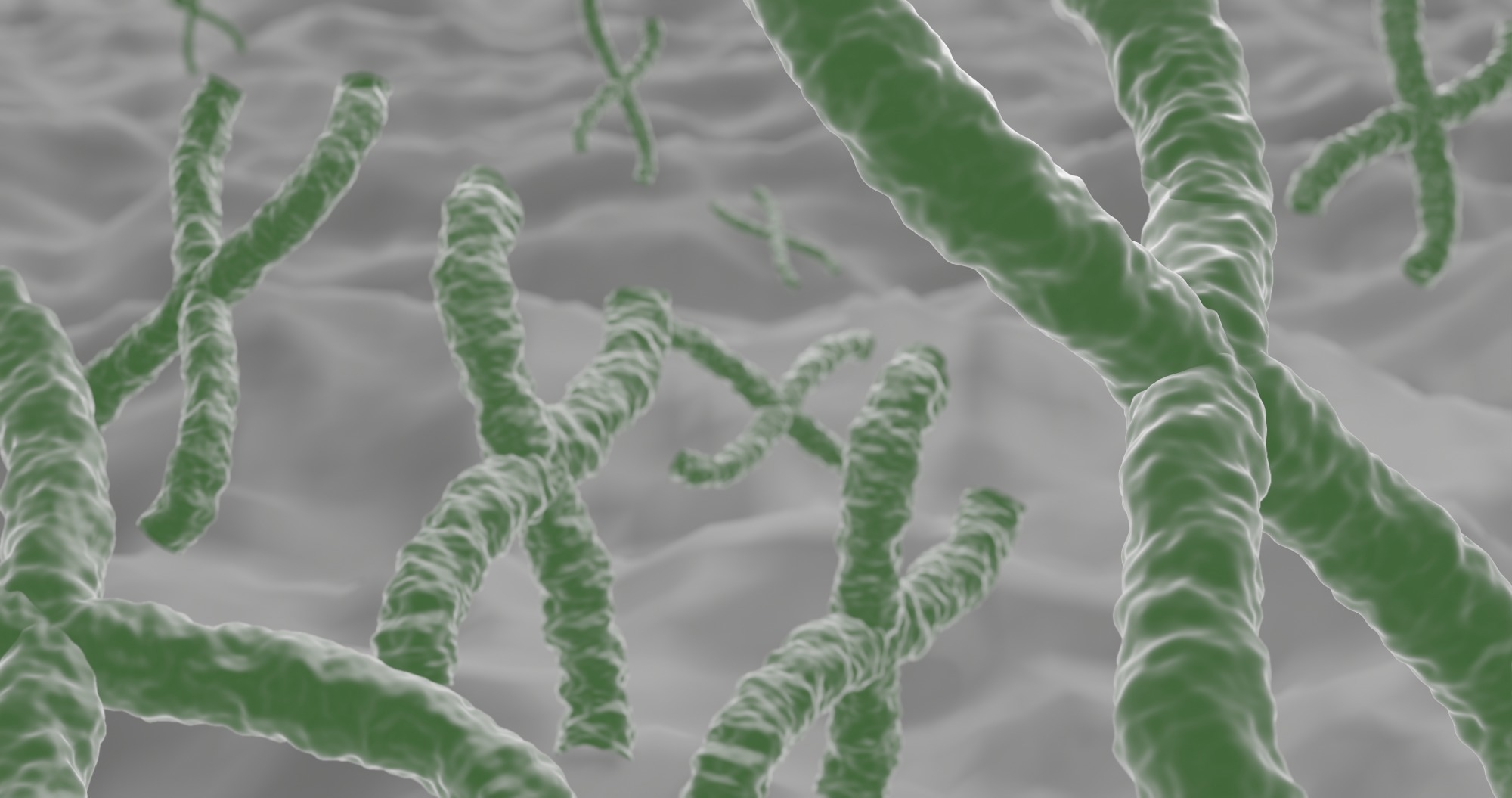Uncommon genetic allele variants may play a vital role in treatment-resistant depression, finds study

In a recent study published in the Scientific Reports Journal, researchers used next-generation exome-wide sequencing to identify any association between treatment-resistant depression and uncommon functional genetic alleles.
The results elucidated five genes that depicted excess variant copies at the exome-wide level. These genes are responsible for a broad spectrum of functions, including transcriptional regulation and immune response.
These findings support research suggesting the complex genetic interactions underpinning major depressive disorders and identify exon targets for future investigation.
 Study: Exome-wide association study of treatment-resistant depression suggests novel treatment targets. Image Credit: MohamadOuaidat/Shutterstock.com
Study: Exome-wide association study of treatment-resistant depression suggests novel treatment targets. Image Credit: MohamadOuaidat/Shutterstock.com
Exome-sequencing in mental health research
Major depressive disorder (MDD) is a serious mental health condition characterized by persistently depressed mood or loss of interest in activities, causing significant impairment in daily life.
Research has explored the condition's biological, psychological, and social underpinnings, which the World Health Organisation (WHO) has ranked as the third largest cause of the global disease burden.
As the name suggests, treatment-resistant depression (TRD) is a form of MDD wherein patients do not show adequate improvement even after treatment with two or more anti-depressant for four weeks or more. It is alarmingly common, with studies estimating that 50-60% of MDD patients also suffer from TRD.
Prior work has established a heritable genetic association in MDD treatment outcomes, with genome-wide association studies (GWAS) identifying multiple common alleles linked with MDD. However, these studies have failed to identify genetic constitutions predisposed to positively or negatively responding to antidepressant treatment.
The discordance between observed heritability in MDD diagnosis versus the apparent lack thereof in antidepressant response suggests the role of uncommon genetic variants not typically captured during GWAS analyses.
Exome sequencing is a cost-effective, targeted form of next-generation genome sequencing wherein only known coding genes (exons) are selectively amplified, built into a library, and then analyzed. This approach allows researchers to focus their resources on the genes or gene-variants most likely to affect phenotype, in this context, TRD.
About the study
The present study used whole-exome sequencing to verify the contributions of uncommon, potentially functional genetic variants in TRD phenotypes. It further aimed to identify alleles, genes, or gene sets associated with the most resistant forms of TRD.
Researchers carried out the study at three scales – single variants, individual genes, and gene-set levels. The team began by recruiting participants to form the experimental (TRD) and control (no mental health conditions) cohorts.
The TRD cohort comprised 150 individuals (MDD or bipolar disorder [BPD]) from the National Institute of Mental Health (NIMH), 24 individuals being treated at the University of Michigan, and eight from the Sequenced Treatment Alternatives to Relieve Depression (STAR*D) study for a total of 182 patients.
The control cohort comprised exon data from 2,021 healthy individuals without a history of mental illness, collected by the Swedish Hospital Discharge Register.
Using Illumina sequencing, researchers extracted, purified, and amplified DNA from all study participants. Case and control samples were prepared and processed to avoid batch effects. The more than 114 billion llumina reads were quality checked and mapped to the Ensembl human genome GRCh38.p13.
Researchers then carried out association analyses at the scales mentioned earlier. The SNP-set (Sequence) Kernel Association Test was employed for the variant-level analyses, revealing more than 1.3 million variants.
Gene-level analyses involved first classifying gene variants into three nested sets – Uncommon, functional, and non-harmful (86,475 variants); uncommon, functional, and damaging (59,549 variants); and uncommon, functional, and with nonsense mutations (2,655 variants). Variants were categorized and processed by the gene.
Previous literature has suggested the disease relevance of gene sets, clusters of genes that cooccur and contribute to a specific function. In this study, 41 gene sets were manually pre-defined and tested to find corroborations with previous research.
Study findings
After cleaning, quality checking, and poor data exclusion, the final dataset comprised 114 billion reads from 149 TRD individuals and 1,976 controls. Variant-level analyses, using 189,497 identified variants, found five genes that carried an excess burden of uncommon, functional variants when comparing the TRD cohort to the controls.
This result confirms the association between uncommon variants not usually detected by GWAS and TRD and strengthens the case for whole-exome analyses in early diagnosis and future therapy.
Researchers identified and tested 14,083 genes at the gene level to investigate their association with TRD. More than fifty genes were found to have excess variants associated with TRD, with the top five being ZNF248, PYHIN1, PRKRA, SLC7A8, and STK19.
These genes are known to play vital roles in diverse biological themes, highlighting the heterogeneous nature of TRD. Zinc Finger Protein 248 (ZNF248) and Zinc Finger DHHC-Type Palmitoyltransferase 3 (ZDHHC3) variants have been identified in previous TRD studies.
Still, the present work represents the first qualitative proof of their association with the condition with the added identification of more than 50 other genes which may underpin MDD.
Gene-set analyses tested 41 gene sets and revealed that the lithium-ion response gene set (GO:0010226) showed a significant association with TRD. GO:0010226 comprises 16 genes with 75 variants.
“Lithium is a first-line treatment option in bipolar disorder, in either manic or depressed states, and often used as an augmentation treatment for antidepressants. Thus, a significant percentage of the cases in our study have used lithium. We unfortunately do not have data that indicates whether these cases are responders or non-responders.”
The association between PYHIN1 and PRKRA, both involved in immune response, with TRD contributes to a growing body of literature suggesting the role of neuroinflammation in psychiatric disorders.
Conclusions
In the present study, researchers used whole exome data from 149 TRD patients and 1,976 healthy controls to investigate the link between uncommon genetic variants and psychiatric disorders, specifically major depressive disorder and treatment-resistant depression. They could identify over 50 genes and one gene set strongly associated with TRD.
Their results suggest that lithium response, transcriptional regulation, immune response, and thyroid hormone transporter activity all contribute to TRD and allow for identifying biomarkers for the early detection of TRD in patients with MDD.
These results form a stepping stone for future research to discover novel therapeutic interventions for these prevalent yet poorly understood diseases.
-
Shah, S. et al. (2023) "Exome-wide association study of treatment-resistant depression suggests novel treatment targets", Scientific Reports, 13(1). doi: 10.1038/s41598-023-38984-z. https://www.nature.com/articles/s41598-023-38984-z#citeas
Posted in: Medical Science News | Medical Research News | Medical Condition News
Tags: Allele, Antidepressant, Bipolar Disorder, Depression, Depressive Disorder, DNA, Exome Sequencing, Exon, Exons, Gene, Genes, Genetic, Genome, Hormone, Hospital, Illumina, Immune Response, Ion, Lithium, Major Depressive Disorder, Mental Health, Phenotype, Protein, Research, Thyroid, Zinc

Written by
Hugo Francisco de Souza
Hugo Francisco de Souza is a scientific writer based in Bangalore, Karnataka, India. His academic passions lie in biogeography, evolutionary biology, and herpetology. He is currently pursuing his Ph.D. from the Centre for Ecological Sciences, Indian Institute of Science, where he studies the origins, dispersal, and speciation of wetland-associated snakes. Hugo has received, amongst others, the DST-INSPIRE fellowship for his doctoral research and the Gold Medal from Pondicherry University for academic excellence during his Masters. His research has been published in high-impact peer-reviewed journals, including PLOS Neglected Tropical Diseases and Systematic Biology. When not working or writing, Hugo can be found consuming copious amounts of anime and manga, composing and making music with his bass guitar, shredding trails on his MTB, playing video games (he prefers the term ‘gaming’), or tinkering with all things tech.